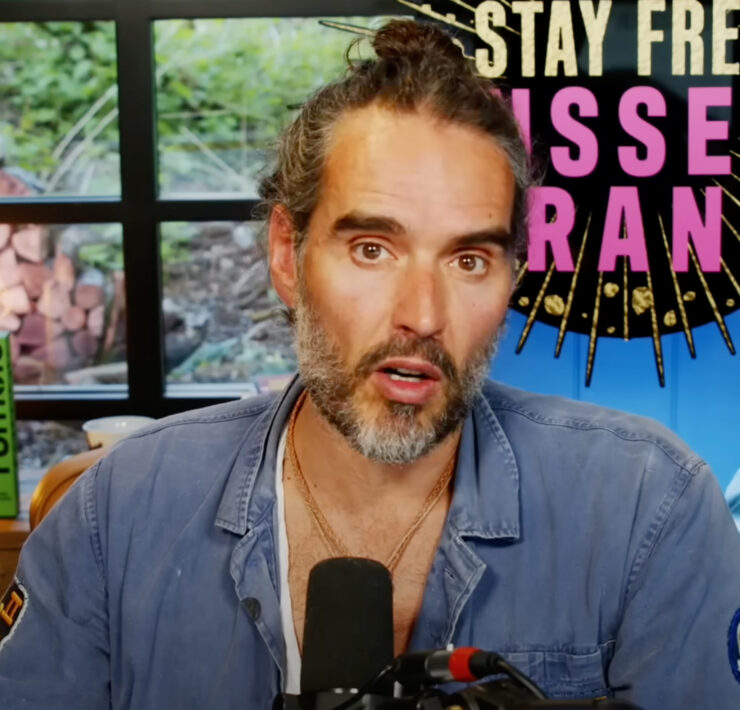Some meals can change your life. Every Thanksgiving I find myself reflecting on how significant the act of eating is to our lives and even how central it is to our faith. Sometimes it seems odd that we celebrate a holiday that centers on a meal, but then I remember how many unforgettable scenes in the Bible revolve around the table—Moses and the elders eating in the presence of the Lord on Mount Sinai, Peter shocking the Jewish world by eating with the Gentile Cornelius and, of course, Jesus presiding at the Last Supper as the head of His new family, a sacramental meal replicated countless times throughout the ages.
The meal that changed my life featured an oversized helping of pre-packaged lasagna. Truth be told, I don’t like lasagna. But 15 years ago, lasagna became for me the very embodiment of hospitality, to the point that I can’t see a piece of lasagna without being taken back to that meal.
It was three weeks before the start of my junior year in college, and I was spending the summer in Los Angeles. I had joined a team of students who were living at an African-American church in a predominantly Hispanic neighborhood. My teammates were Korean and Indian, and I was the only white person for miles in every direction. It was my first real experience of cultural displacement, light years away from anything that felt like home, and I had often felt like I was drowning in multicultural confusion.
It is incredible that I associate that time with hospitality, not only for personal reasons, but also because the history of the interaction between the church and the neighborhood was marked by an unfortunate lack of hospitality. Fifty years earlier the neighborhood and the church had been predominantly white, but an influx of African-Americans led to what’s called "white flight," with the bulk of the residents moving north. The church became a black church, with only a handful of white families commuting on Sunday mornings. Two decades later, there was an Hispanic migration into the same neighborhood, and the resultant "black flight" affected everything but the church. The church remained almost exclusively black.
There was little to no relationship between the church and its neighbors. Crime and suspicion were high, which I learned firsthand the time I set off the alarm in the church sanctuary and found myself at center stage in a police helicopter searchlight. Our team was asked to help facilitate relationships between church members and the surrounding residents. As you might imagine, four college students from a local liberal arts college were not terribly effective at bridging the divide.
After a largely unsuccessful summer, full of team conflict and lukewarm relationships with church members, I lived by myself at the church for two weeks. I was sleeping on a shabby couch that was eight inches too short, sweating through 85 degree nights with no air conditioning. I couldn’t open the windows because of the crime risk, and when I turned on the lights cockroaches would scatter, leading to many sleepless hours imagining I felt them crawling on me. I was just learning how to cook, and most of my meals involved some combination of pasta, red sauce, beans, crumbling tortillas and overripe tomatoes.
Needless to say, when Stephen invited me to dinner at his house, I greedily accepted. Stephen was a pastor working part-time at the church while attending seminary. He was from Kenya, and he had moved to the United States for his theological education, bringing his wife and two children with him. He was joyful and affable, with a deep, contagious laugh, just like every other Kenyan person I have ever met.
I anticipated that dinner for several days. Stephen picked me up from the church, and my hopes for a home-cooked meal in a comfortable, climate-controlled setting were high. But my spirits fell when we stopped at a budget grocery store on the way to his house, and he bought a large pre-packaged lasagna and salad-in-a-bag. To be honest, I felt angry. This is what he is going to serve? He knows I’ve been eating horribly all summer and that I’ve lost about 15 pounds. He knows I’m living alone in a sparse, uncomfortable setting, and he can’t even cook something from scratch? I don’t even like lasagna!
We arrived at his simple apartment—with no air conditioning—and I sat down at his rickety kitchen table while Stephen cooked the lasagna. When it finished baking, he cut me the largest piece I’ve ever seen. Plate-sized is an understatement, since its juicy corners were dripping over the edges. But he only cut a bite-sized piece for himself, as small as mine was big. He explained he had eaten a big lunch.
I didn’t think anything more of it as I dove into my piece, my distaste for lasagna temporarily overwhelmed by my ravenous, 20-year-old hunger. During the meal, while picking at his food, Stephen asked me about my family, my major, my friends and my future plans. I remember how genuinely interested he was in my life and how he encouraged me to consider seminary.
Halfway through dinner, his wife crashed through the front door, in tears, and immediately retreated to the bedroom. After returning from comforting her, Stephen explained that she had started a telemarketing job that morning but had been fired after just a few hours because no one could understand her thick accent. This was the third job she had lost in a month.
Later, after she recovered, she came out into the living room and we shared a wonderful conversation, with much laughter. Some of their missionary friends stopped by, and they all told stories, from their narrow escapes from thieves in the middle of the night to Stephen’s tale of praying for a wife and then meeting her two days later. I lingered as long as I could that night, relishing those hours of feeling at home.
Looking back on that night, I am astonished at how long it took me to put all the pieces together about that meal and about their situation. It wasn’t until I was in seminary, three years later, that I realized the full truth. That store-bought lasagna, the one I complained about, was their family’s food ration for the entire week. Two adults and two children, living on a part-time income and meager savings, were going to eat what was left for the next six days. Stephen had served me an overflowing portion of something he couldn’t afford to give.
A life-changing meal is not defined by what you eat, but by whom you eat it with. Tax collectors and prostitutes ate meals with Jesus the Messiah and received acceptance, Gentiles ate meals with the apostles and gained salvation, and I, a self-absorbed, naïve, entitled college kid ate a meal with a Kenyan pastor and his wife and received a gift of extravagant, sacrificial hospitality.
Stephen and his family still live in the area. I think it’s time I buy some lasagna.
Adam S. McHugh is a writer, pastor, spiritual director and the author of Introverts in the Church: Finding Our Place in an Extroverted Culture. He can be reached at [email protected].





















